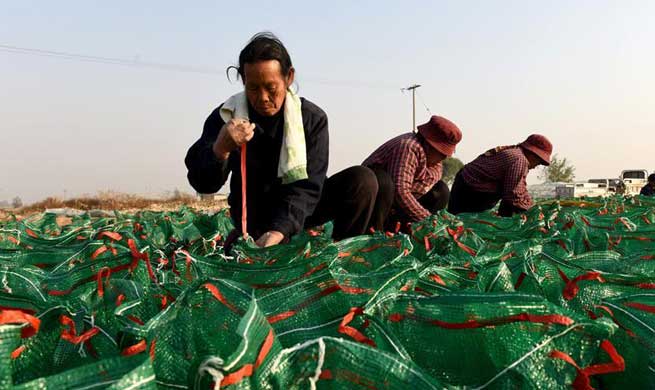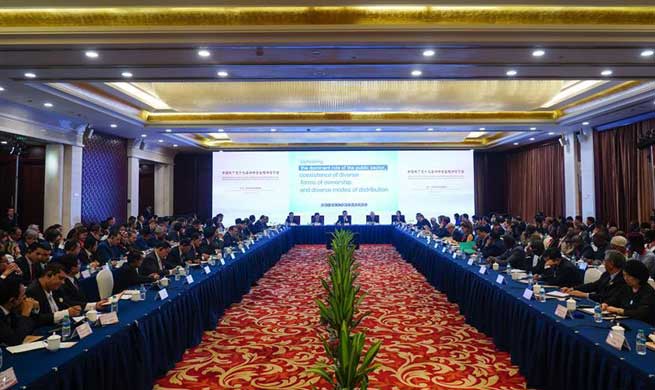VIENTIANE, Nov. 21 (Xinhua) -- The Lao government is stepping up its fight against the emergence of so-called "super-bugs": infections that do not respond to commonly used antibiotics.
Backed by international partners, the Lao Ministry of Health and Lao Ministry of Agriculture and Forestry launched on Tuesday the National Strategic Plan against Antimicrobial Resistance 2019-2023, Lao News Agency (KPL) reported on Thursday.
This will guide a raft of planned policy measures and operational initiatives to monitor, prevent and control the emergence of drug resistant super bugs in Laos.
Antimicrobial resistance happens when microorganisms such as bacteria evolve defenses against the medicines normally used to kill them. The result is the medicine no longer cures the infection.
"Misuse and overuse of antibiotics in humans, animals and plants has contributed to Antimicrobial Resistance. This is a major concern. Drug-resistant infections can kill people and cause outbreaks -- particularly in hospitals. They impose huge costs to individuals and society," said Lao Minister of Health Bounkong Syhavong.
"This is the prospect the world face -- unless countries take action to fight the emergence of Antimicrobial Resistance. The ultimate goal of Lao's Strategic Plan is to make sure our most valuable drugs -- such as antibiotics -- continue to work for decades to come," said Mark Jacobs, WHO Representative to Laos.
The Strategic Plan will guide implementation of an operational plan on antimicrobial resistance in Laos. The plan targets five strategic objectives: improve awareness and understanding of antimicrobial resistance, strengthen the antimicrobial resistance surveillance system, improve infection prevention and control, optimize the use of antimicrobials in humans and animals, and improve coordination and budget support.
The plan aims to reduce the use of antimicrobials in both humans and animals by 20 percent by 2023.













